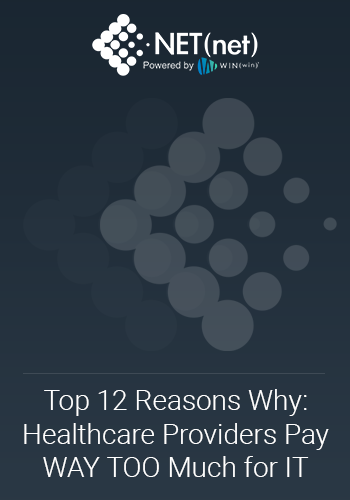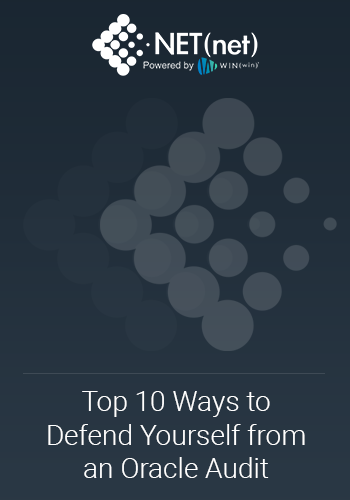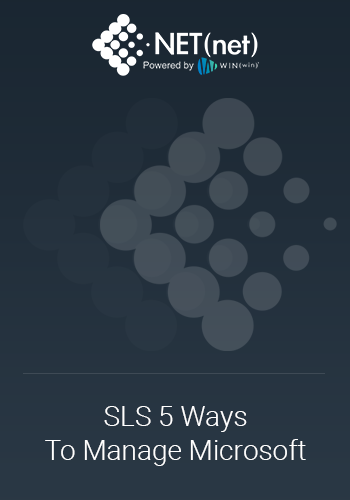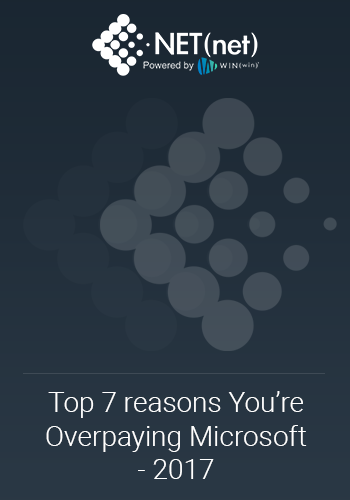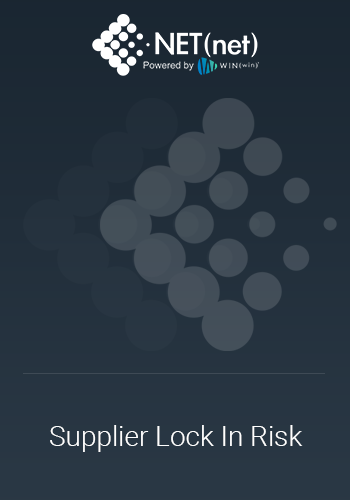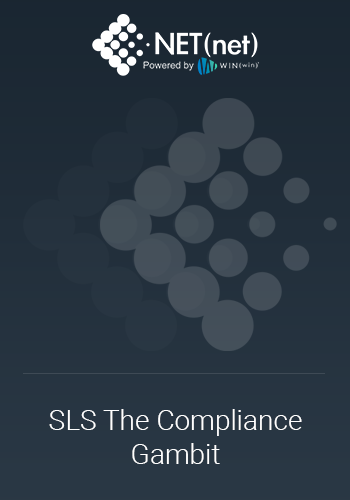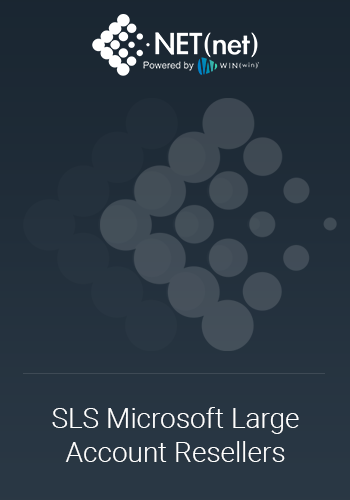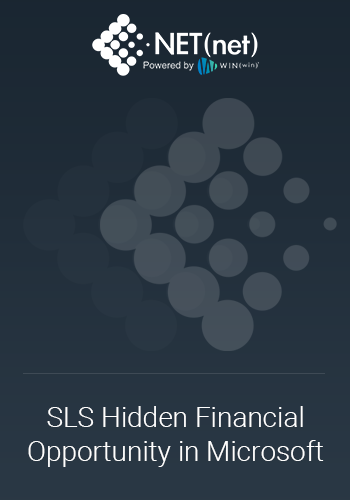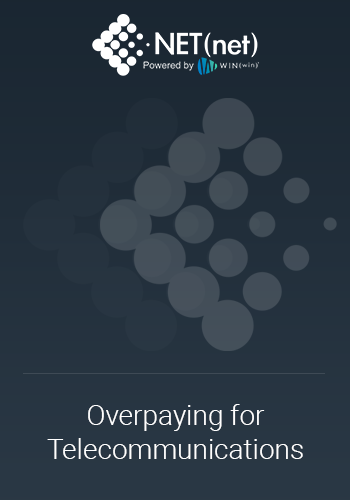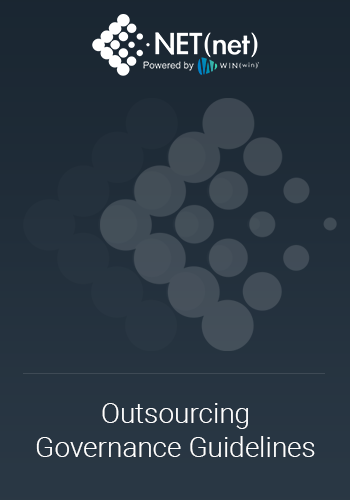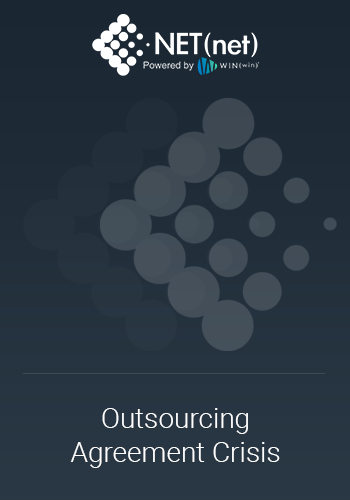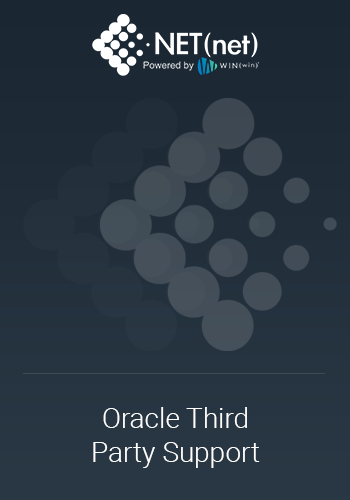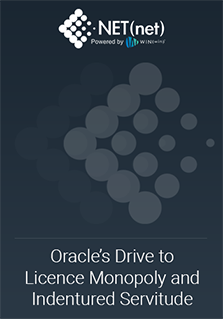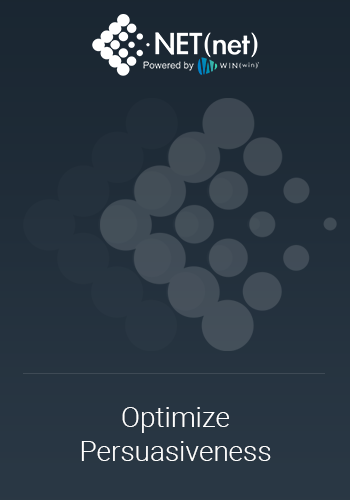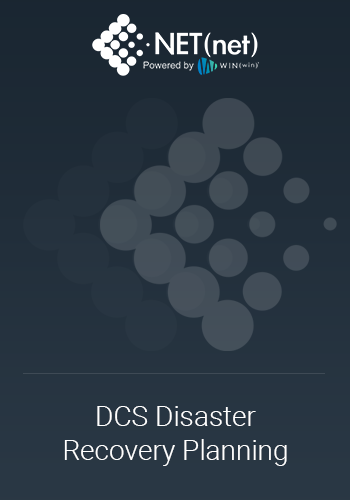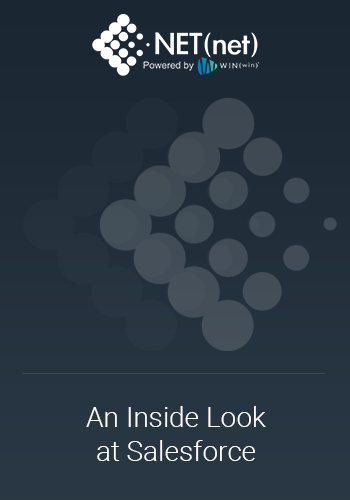Recently we sat down with Scott Braden, NET(net)’s SVP of Value Creation, to chat about his career, his Microsoft experience, working at NET(net) and the industry as a whole. Scott hails proudly from Texas and is a Texas A&M graduate who’s been working in the technology industry for over 30 years, the last fifteen of which have been with NET(net). In fact, Scott just celebrated his fifteenth year this month, so we thought it might be a great time to get his take on all things Microsoft and the tech industry.
Question (Dexter Siglin, Chief Operating Officer, NET(net))
Wow, Scott – congratulations on celebrating fifteen years with NET(net)! I feel like a newbie having just passed nine years, so I can appreciate what a milestone it is, especially since I’ve witnessed firsthand the excitement and energy you bring to engagements. What is it about this industry and NET(net) in particular, that’s kept you engaged all this time?
Scott:
(laughs) I don’t know, it’s kind of weird…no guidance counselor would have ever recommended this job to me. I try to explain it to people (what I do), and they still don’t get it. After fifteen years I’m still working on a decent elevator pitch for friends and family on what it is I do. But the reason I’ve been here as long as I have, is the NET(net) people. I mean, every time there is an opportunity for Steve (Founder) and Kellsey (CEO) to go above and beyond to take care of people, recognize people, or to encourage them, they do it. And the training, heck, I’ve learned so much from this group and my peers here that it’s always exciting.
You know I keep touch with a lot of friends in the industry, and it’s a really unique company we have here (laughs)… there is nobody else that does it like we do it. And plus, you know it's got the fun aspect of tilting at the Microsoft windmill…I’m not going to lie, that’s a lot of fun being a market disruptor...I still get a kick out of it.
Dexter:
So, you’ve been doing this now for….ahem….30 plus years or so. You’ve done it all really, from sales, project management, services to now consulting Clients in creating more value with their Microsoft investments… What has surprised – and or – not surprised you over the last couple decades when it comes to the industry and or Microsoft specifically?
Scott:
Well, I mean it depends on how you look at it…in some ways a lot has changed in and in others, it hasn’t changed at all. From one point of view, everything has gone or is going from on-premise to the cloud, and entire business models have been upended. It’s no longer a capex world, it’s an OpEx world. The view of business models has been shuffled, and whether it’s the chicken or the egg, OpEx is the direction it’s going (for now).
But then on the other side, nothing’s changed because Microsoft is still a profit motivated, monopolistic behaving company. They’ve gotten even more market share than they had before if you can believe that, and more wallet share of IT. And they really haven’t changed their behavior any… they’re doing exactly the same stuff on how they approach customers and pricing, and exactly what you’d think they would do in the cloud. I mean basically, the difference is that the stuff they're selling is now on their cloud instead of your premises. It’s a pretty good process and gig for Microsoft actually, since now when they raise prices, people have fewer levers to pull unilaterally.
I’ve always said that as long as Microsoft is profit driven, I’ll always have a job and enjoy saving money at Microsoft’s expense for our clients.
Dexter:
So, while Microsoft and a lot other IT suppliers haven’t really changed their stripes per se, what about the IT professionals? What are you seeing from them in terms of how they try to manage the day to day of running enterprise IT and their interactions with suppliers?
Scott:
Man, it’s tough going for a lot of folks in IT right now. Generally, I see a shortfall in resources in a lot of different areas, which can really cause teams to struggle in managing things proactively, and buying things….as we say here, buying at the right time, in the right way, and for the right price. Candidly, many companies just don’t have the resources to thoroughly understand all the levers involved with signing big new agreements. It’s already hard to be an expert on everything – which is why NET(net) exists – but when resources are strained, it becomes particularly hard for companies to go it alone. When they do, a couple years down the road, they're left in bad situations where they're over budget, overpaying, and have limited options.
Unfortunately, Microsoft customers are also at the mercy of whoever they are assigned from a sales and support standpoint. Obviously, the larger enterprises have dedicated account reps from Microsoft, but some smaller or midmarket customers typically have less experienced and tenured reps who are often not much help to customers.
Another thing I can share, is I try to be very sensitive to the Client environments because they can change so quickly for the people involved. Take for example M&A or Private Equity transactions, where we might be there to help untangle a myriad of IT agreements and investments and or just optimize the spend. There is typically a lot of new activity which candidly makes some people nervous about their jobs and careers. One day these professionals are going along doing their jobs to the best of their ability, and the next, there are consultants from ten different firms descending into their business. So, I like to lead with making it a collaboration and get people ‘in the boat’ with the value improvements. Seeing our Clients’ team members come out the other end of our engagements as superheroes and change agents is really gratifying…definitely a win-win part of what I do.
Dexter:
Given all these challenges for staff and executives that lead them, what are the top 2 or 3 things that you would tell a new CIO or IT leader in terms of Microsoft or their infrastructure?
Scott:
Well, one of the first things I would tell them – they typically don’t want to hear (laughs) or like to consider. I like to ask people, if everything you are doing is in the cloud, and all your apps are in a browser, why are you still running a fat windows client laptop that’s a huge security risk? There is a valid answer of course, and it’s typically around legacy applications. Customers just have too many legacy and older applications that they can’t move away from immediately. So wherever possible, I like to focus Clients on getting off those legacy apps and helping them build a roadmap for it. Once you unlock that door, that roadblock is gone, you get so much more flexible in your infrastructure – no longer tied to on-prem or fat clients.
Along those same lines, I encourage something that I call Investment Portfolio theory as applied to infrastructure. Financial advisors typically recommend that Investors take 5% of their portfolio and invest in new areas or experimental – high risk, high reward areas. IT leaders should be doing the same thing with their IT portfolio. Not necessarily 5% of your IT budget... But some small amount of money and effort. Companies need to take small chances here and there and experiment with new or alternative tech – sometimes it won’t work out, but some will hit a game changing home run. Having your own internal ‘Bell Labs’ set up to experiment with new tech and applications can not only help with your real word infrastructure – but creates an entrepreneurial mindset and culture for everyone involved.
Some of the newer companies we work with that maybe haven’t been around for decades embrace this concept and aren’t afraid to take on migrations and shift gears to stay ahead of the cost and tech curves.
The changing demographics of the IT workforce are going to force these changes eventually anyway. Corporate IT is kind of stuck doing things the ‘old way’ in too many cases. The younger generations have quite literally grown up on mobile and browser-based applications. The concept that all your apps run on a fat client are going to seem ludicrous to future leaders. Science theory is a lot like this – people don’t really change minds of scientists or academia that are married to their theories – so the old generation has to die off before the new theories take hold and replace them. So, my advice is – don’t wait to be replaced, go ahead and do it now where you can.
Dexter:
How about Microsoft specifically? Any last words of wisdom to pass along?
Scott:
Yeah, right out the gate I would say that if you are just starting, or have recently started your ‘cloud journey’, you have no idea what its going to cost. I don’t care what your peers tell you – most don’t know what they’re talking about. I’ve heard over and over – “yeah, well we’re moving everything from on-prem to Azure and we’re going to save millions”. No you're not. Now it may be in your company’s best interest in financial modeling to move to OpEx structure, but you have no idea before hand what its really going to cost. I’ve already seen leading indicator articles around companies now understanding that Cloud is not cheaper and looking at moving to their own data centers and hybrid models.
The other thing to look for soon are more frequent price increases… I know, shocking right? You may have seen recently some earnings issues Microsoft is having, largely due to energy costs. You know, in the past, Microsoft followed a similar cycle – In July they would go on vacation, in August and September they would have their conferences, then in November and October you would see new price increases and programs roll out. But they broke away from that, and now they’re doing it more Google style, meaning - whenever its ready, its ready. Announce it and roll it out. So, I think we’re going to see more frequent price increases in this inflationary environment and rising energy prices.
Another thing Microsoft does a great job of is widening their product base inside their existing Clients. You know, when a customer has any kind of need, Microsoft’s answer is to sell them a product and customize it. From CRM, ERP and even now LinkedIn – they can reach their tentacles far into an enterprise now, and often with a mandate from the business or the ownership saying basically “Microsoft first” and any other competitive supplier must prove their case. When Microsoft knows they are preferred, you will pay more than you should, especially if you decide to go it alone.
Dexter:
Great insight Scott, thanks and congratulations again on 15 years with NET(net)!
About NET(net)
Founded in 2002, NET(net) is the world’s leading IT Investment Optimization firm, helping clients find, get, and keep more economic and strategic value in their technology supply chains. With over 2,500 clients around the world in nearly all industries and geographies, and with the experience of over 25,000 field engagements with over 250 technology suppliers in XaaS, Cloud, Hardware, Software, Services, Healthcare, Outsourcing, Infrastructure, Telecommunications, and other areas of IT spend, NET(net) has the expertise you need, the experience you want, and delivers the performance you demand, resulting in incremental client captured value in excess of $250 billion since 2002. Contact us today at info@netnetweb.com, visit us online at www.netnetweb.com, or call us at +1-616-546-3100 to see if we can help you capture more value in your IT investments, agreements, and relationships.
NET(net)’s Website/Blogs/Articles and other content is subject to NET(net)’s legal terms offered for general information purposes only, and while NET(net) may offer views and opinions regarding the subject matter, such views and opinions are not intended to malign or disparage any other company or other individual or group.

